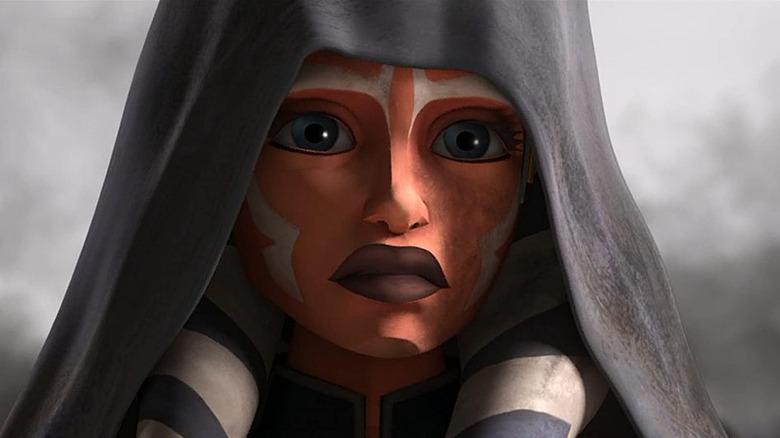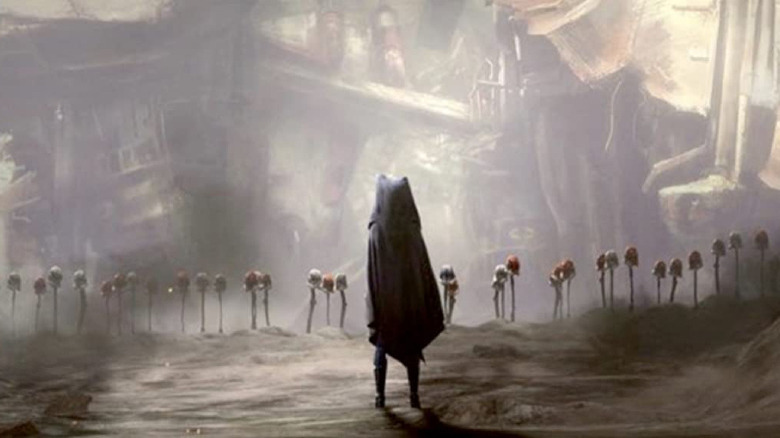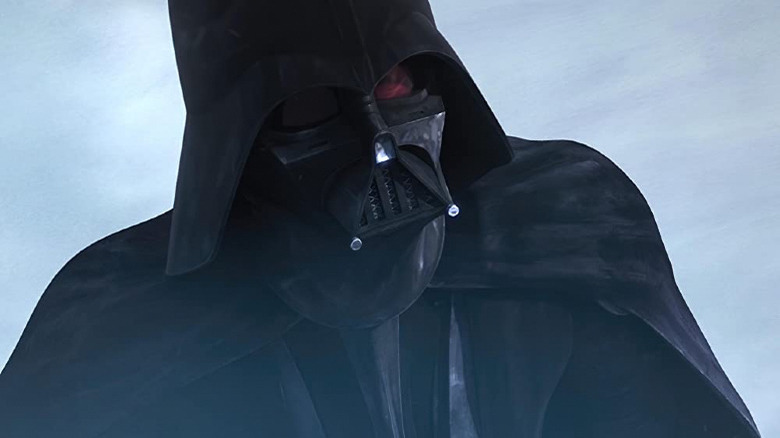How Dave Filoni Decided When The Final Season Of Star Wars: The Clone Wars Would End
https://www.looper.com/426001/...Ending "Star Wars: The Clone Wars" was always going to be tricky. The animated series' titular conflict had already begun in the 2002 movie "Attack of the Clones," freeing the show up to dive right into the thick of it by the time it premiered in 2008. However, thanks to 2005's "Revenge of the Sith," it was also a given the war would end with the mass murder of the Jedi at the hands of their once-trusted clone troopers thanks to Darth Sidious (aka Emperor Palpatine) issuing Order 66. Not really the cheeriest way to conclude a series that's, in theory, targeted at kids.
The reality was, however, "Clone Wars" had long since evolved away from the light-hearted and action-packed but thematically-flimsy cartoon series it had started out as by the time it was nearing its seventh and final season. At that point, the show had tackled several multi-episode arcs dealing with mature topics like the art of political negotiation and systematic corruption, as well as issues like spirituality, trauma, and the fuzzy morality of war. As such, it only felt right "Clone Wars" should overlap with the darkest chapter in the Skywalker Saga before drawing to a close.
But how deep, exactly, should "Clone Wars" wade into the events of "Revenge of the Sith?" That was the real question supervising director and writer Dave Filoni had to answer. In an interview with Deadline in 2020, Filoni explained how the show's final season — in particular, the final four-part arc about The Battle of Mandalore — all went back to things he had talked to "Star Wars" and "Clone Wars" creator George Lucas about over the years.
It all came back to Vader
The Battle of Mandalore sees Mandalorian warrior Bo-Katan Kryze and ex-Jedi Ahsoka Tano successfully team up with Ahsoka's old pal Captain Rex and his clone battalion to reclaim Mandalore from Darth Maul. But what ought to be a victory goest terribly wrong when Ahsoka fails to heed Maul's warning that Sidious plans to make her former mentor, Anakin Skywalker, his new apprentice, resulting in Ahsoka's near-death when Order 66 is issued. In the end, Maul escapes, and Rex and Ahsoka are left to bury their fallen clone comrades on a lifeless moon.
Keep in mind, this all takes place as Anakin falls to the Dark Side and becomes Darth Vader, as seen in "Revenge of the Sith." The final scene of "Clone Wars" then jumps ahead in time to Vader and his troops surveying the moon where Ahsoka and Rex crashed, with Vader recovering Ahsoka's lightsaber from where she buried it near the clones' grave. Speaking to Deadline, Filoni explained the reasoning for the time jump, saying he "always had in mind" the show's ending would involve Vader.
But as "compelling" as he found the imagery in this scene, Filoni felt it really symbolized a key idea he and Lucas had previously discussed regarding the aftermath of the Clone Wars:
"The reason why we never saw too many Jedis fighting against the Empire is the fact that a lot of them felt that they failed in their goal to protect the Republic, and they were all deceived. And so a lot of them realized that fighting a war maybe isn't the best way and created violence. They set their sabers down, they tried to find different paths to helping people than perhaps, you know, being violent, and so there is an old idea there."
Retelling Anakin's complete story
For as much as "Clone Wars" splits its focus between several characters (even devoting multi-part arcs to minor players like Asajj Ventress), it's Anakin and Ahsoka who serve as the show's true leads. The pair follows the same path for much of the series, steadily growing and maturing side-by-side into wiser and more compassionate individuals. It's what makes Anakin's turn to evil all the more tragic in the show's finale, imbuing his fall to the Dark Side with a rich pathos that it simply doesn't have in "Revenge of the Sith" (in this writer's opinion, natch).
For Filoni, his goal was to re-tell Anakin's "complete story" on "Clone Wars" without retreading "Revenge of the Sith" so as to capture its tragedy in a different light. He explained:
"I'm trying to maintain the integrity of what George did in his work and just say, this is how it went for Ahsoka and Rex. And so it was easy at the end to kind of split things apart, and it wasn't really about saying, 'Here's the greatest hits of things, remember this from 'Revenge of the Sith'?' All the scenes that you saw and moments that cross over are actually very relevant for Ahsoka and Rex, and at a certain point I needed that story to kind of go in its own direction to make sure I wasn't violating the space that belonged to the Anakin Skywalker saga."
This is also why "Clone Wars" nods to major scenes from "Revenge of the Sith" without fully re-creating them. "All these other events that were covered, were covered by George, and that's where they're important and from his perspective is important," Filoni added. Indeed, thanks to his approach, "Clone Wars" makes for a vital compliment to the Skywalker Saga.


